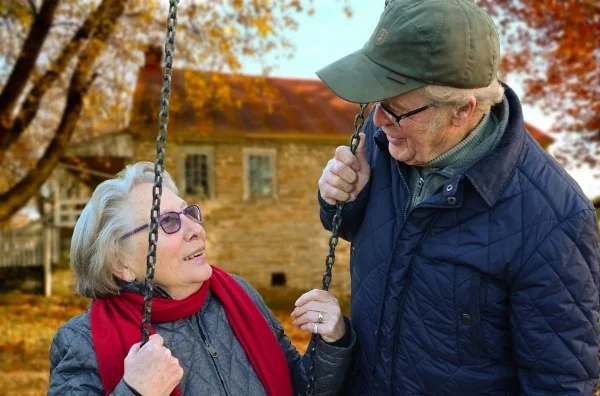Asking for help is vulnerable; when we solicit support of any kind, we open ourselves up to the possibility of rejection and all the accompanying feelings and self-judgments. So, it’s understandable that many of us feel anxious about it or have a hard time asking others for much beyond passing the mashed potatoes at dinner-- and even that can raise anxiety.
Read More“Tuesday at 3 pm is great. Thanks for your flexibility. Looking forward to chatting then.”
Imagine that the above e-mail pops into your inbox. Do you get the impression that the message’s author is actually looking forward to talking to you? It probably depends on context, of course, but stock language like, “Looking forward to chatting,” or, “Thanks for your patience,” or even, “Sincerely,” are so overused that they’ve mostly lost their meaning. Those phrases and others like them are the “small talk” equivalent of e-mail; they’re polite, they usually don’t offer meaningful content, they don’t require a great deal of thought for either person in the interaction, and they are often the easiest mode of communication for people who don’t know each other well. (We’ll focus on work e-mails in this blogpost, but everything here applies just as much to other types of e-mails or online messages.)
Whether you’re spending the holidays with family, with friends, or with yourself this year, your celebrations probably won’t live up to the impossibly wholesome fireside gatherings that the media depicts as the norm. Well, the good news is that no matter how many pictures of glistening ham you see on Instagram, nobody else’s holiday is going to be perfect, either. So, we’ve come up with some tips for making the most out of your holidays, whatever they look like.
Read More“Just be yourself!”
“Don’t worry about what other people think of you!”
“Dance like nobody’s watching!”
“To thine own self be true.”
We consume these truisms from the moment our infant brains can understand them and we don’t stop until we’ve seen one too many cliché-littered Pinterest boards. But the reality is, if you’re flailing your limbs on the dance floor without a single thought of who’s watching, or who’s within arm’s reach, you might accidentally smack someone in the face. How do you dance like you’re aware that people are watching, but you know that you’re dancing for yourself, and not for them? How can you think about the space you're taking up on the dance floor without having it affect your self-expression? How soon until we're done with this metaphor? It's important to "be true to yourself," but if you’re not thinking about how others respond to your behavior, you might be missing out on opportunities to connect, and you may even hurt others or yourself in the process.
Ah, the holidays: A time when we hope our lives will look like those wholesome cartoon specials we watched as children, but also a time when anxieties about getting stuck in conversation with people who hold different political and moral ideologies might keep you from doing that happy dance from A Charlie Brown Christmas.
This Thanksgiving, we encourage you to take some time to connect with others in ways that feel authentic without feeling emotionally exhausting. To help the conversation flow, we offer you some ice-breakers that will get others to share about themselves while subtly nudging everyone’s mood in a positive direction. So if you do end up having the “here’s why racism is bad” conversation with Uncle Joe, you’ll have a buffer of positive experience--and perhaps some common ground--that’ll make it easier for you to communicate with one another.
Imagine you’re in an animated conversation with someone. You both laugh at something together, but then your chuckles trail off and you’re left in silence. What now?
Do you say something immediately? Do you wait for the other person to say something, no matter how long that takes? Do you jump in with whatever enters your head? Of course, it likely differs from situation to situation, but you probably average some number of seconds before you say something new if the other person doesn’t say anything, and you probably don’t stray too far from that average too often.
Has your anger ever led to an action you regretted? Maybe you sent a text you didn’t feel great about, maybe some words came out of your mouth more harshly than you’d intended, or maybe your anger came out sideways and you spent some time silently fuming and distracted from your everyday life. Since anger can compel you to take action before thinking, it can be useful to have some tools ready for the next time you’re feeling peeved.
Read MoreChances are, you’ve had the experience of binging on potato chips or other junk food when what you really wanted was a meal. You’re famished, so instead of taking the time to cook something, you reach for whatever’s quickest, easiest, or most tempting, but you end up feeling like garbage. Connection can work similarly.
Read MoreWhether you’re looking for a good fit with a friend, a romantic partner, or even a new workplace, you’ve probably heard tips like “communication is key” and “stick with someone/somewhere that encourages you to grow” and “go with your gut.” Sometimes even those clichés can be useful, but there are some other “tells” about how any given relationship is going that can be easy to miss if you’re not looking for them, especially since they aren’t as culturally emphasized as platitudes like “follow your heart.” Of course, these aren’t going to be the *only* things you should pay attention to, but they can all be easy to overlook, particularly if you are focusing some portion of your energy on appearing desirable to the other person/ workplace/ whatever.
Five to one: According to one of the most prominent social scientists in the field of romantic relationships, John Gottman, that’s the ratio of positive to negative interactions in stable relationships. Couples were significantly less likely to get a divorce when they had about five positive interactions for every negative interaction they had.
Read MoreHey,
So you tried to be vulnerable in some way, whether it was telling someone how you felt, or asking for what you wanted or needed, or sharing about yourself in a way that felt like “too much,” or otherwise extending an invitation to someone to join you in being a little more human together. And for whatever reason, in some way, it didn’t go as well as you’d hoped. And maybe right now, you feel some combination of disappointed, sad, hurt, invalidated, anxious, hopeless, worthless, angry, frustrated, and/or other feelings you didn't sign up for.
What do the following have in common?
- A “define the relationship” conversation with a crush
- Mentioning to your roommate that you never check your Facebook messages
- Telling your friend that the way he acts when he’s angry is scary to you
We’ve all been there. You’re at a party, and somebody asks you a small talk question that you’re afraid will beget more small talk and before you know it, you’re thirty minutes deep into a discussion about traffic patterns in your local area. Whether the question that somebody is asking you is, “Where are you from?” Or, “Wasn’t the traffic getting here awful?” You can prevent your conversation from slipping into a night of small talk by responding the following way:
Read MoreHave you ever felt comfortable telling something intimate to your hair stylist or bartender or ride-share driver, and then finding yourself feeling warm toward them, and perhaps inclined to tip more? Have you ever developed strong feelings for someone you were dating in a low-stakes context, like someone you knew you didn’t want to be with long-term? Then you are likely familiar with what I’ve deemed “the vulnerability paradox.” According to the vulnerability paradox, a pattern I’ve noticed in myself and others, it’s often easier to open up to those we are not relatively close to, yet, the very act of opening up brings us closer.
Read MoreCultural niceties can make it challenging to answer “How are you?” honestly if you are feeling much more than, “Fine, thanks. How about you?” If you change up the phrasing of your question even slightly, though, it can often be enough to disrupt the automatic process that leads to uninformative and uninteresting answers. Here are some options for making it easier on others to answer you honestly, even if they’re not feeling “fine.”
Read MoreWe'll cut to the chase. It’s boundaries, or more specifically, setting boundaries liberally and respecting them consistently.
Surprised? Think about it this way. Boundaries come on a spectrum, which looks different for each person-- there are smaller boundaries, which might look like, “Please lower your voice; my roommates are sleeping” and bigger boundaries, which might be more like, “Please don’t come to my house again.”
What a lot of folks don’t realize is that setting and respecting smaller boundaries are the single best way to avoid the big boundaries.
I used to be awful at receiving critical feedback or anything I perceived as rejection. I was so bad at it that it led me to quit things I otherwise enjoyed. I went to musical theater camp as a middle schooler and got turned down for big parts for two summers, so I quit. As a dance team member in high school, I had to hear about how I could improve on a regular basis, so I quit. The pattern pervaded pretty much all aspects of my life for years.
America is incredibly lonely, but social norms and the nature of loneliness, itself, can make it difficult for people to take the actions that make them feel more connected to others; loneliness can lead to a feedback loop in which feelings of isolation make you perceive the world in ways that lead you to feel even lonelier.
Since this leaves a lot of folks feeling trapped in their loneliness and unable to see a way out, we decided to develop some activities to help break the cycle.


















